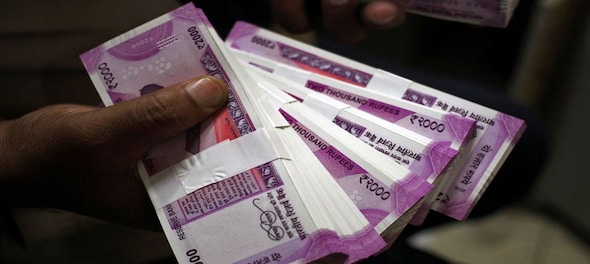
Citi Research has increased India's current account deficit (CAD) forecast to 2.8 percent of GDP from 2.5 percent earlier for the financial year 2023 while it has raised the country's balance of payments (BoP) deficit forecast to $18 billion from $7 billion earlier for FY23.
Current account deficit occurs when the total value of goods and services a country imports is more than the value of goods and services it exports. A balance of payments deficit is a country's import of goods, services, and capital exceeding the export.
Citi said that the higher prices of coal, edible oil, fertilizers will raise import bill by $18-25 billion in FY23, leading to the increase in forecast of CAD and BoP deficit.
"Specifically on imports, price effect would be visible on commodities beyond oil and gold. We identify three products (edible oils, coal and fertilizers) where price pressure could add significant upside to the non-oil non-gold import bill," said Citi in its report released on Tuesday.
"We see ~USD 18-25bn (0.5-0.7 percent of GDP) upside to import bill from these commodities in FY23. Consequently, we now expect FY23 current account deficit at 2.8 percent of GDP (vs 2.5 percent earlier) and BoP deficit of USD18bn in FY23 (vs USD 7bn earlier)," it added.
In FY22, price rise and volume had contributed to import and export growth, Citi mentioned, adding that lately, volumes have been moderating while price spike is becoming prime driver of nominal imports.
"Volume growth of non-petroleum exports fell to 7.6 percent YoY in Feb this year from a recent peak of 9.4 percent YoY in Nov-21," the report said. "This implies that export volume growth had started to taper off even before the start of the Russia-Ukraine conflict. On the other hand, growth in deflators for non-petroleum exports rose to 18.5 percent in Feb from 16.1 percent YoY in Nov-21," it added.
According to Citi, the recent trend of falling export volume growth will gather momentum as global demand comes under pressure.
"Our global economists have reduced our 2022 global growth forecast by -0.6pp to 3.3 percent and our 2023 forecast by -0.1pp to 3.1 percent," it said. Moreover, Citi economists further believe that the Omicron wave in China will significantly affect growth in 2QCY22.
It, however, added that while volume growth would moderate going forward, prices are marching upwards. "So, despite moderate volumes, nominal export growth is likely to remain healthy in FY23 due to higher prices," said Citi.
(Edited by : Niral Sharma)
Check out our in-depth Market Coverage, Business News & get real-time Stock Market Updates on CNBC-TV18. Also, Watch our channels CNBC-TV18, CNBC Awaaz and CNBC Bajar Live on-the-go!


BJP's Hindi heartland dominance faces test in phase 3 polls
May 2, 2024 9:14 PM
Lok Sabha Election: Re-elections at a Ajmer booth after presiding officer misplaces register of voters
May 2, 2024 4:54 PM

